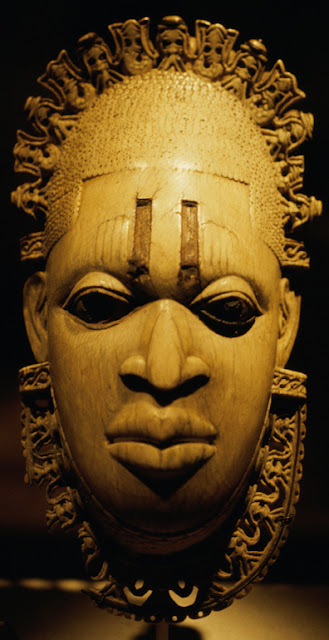Occult science is the act beyond the range of human sense, transcending the bounds of natural knowledge, secret, unknown, not discovered without test or experiments; may be mysterious, magical supernatural or otherwise.
In certain culture oracle is “Word of God” coming out from a person with great wisdom and repute of infallibility hence “oracle has spoken”. Oracle is the consolidated form of the Omnipresence and being for whom lesser beings may deputize as well as condensed wisdom represented by revered ancestors. They are capable of shifting facts from false-hood, discern good from evil, by administering punishment and providing answers to questions and problems which are beyond the comprehension of the ordinary human beings.
The oracle, the oraculist and the attendants are objects and subjects of the spirits, therefore oracles in early culture were often the last resorts. The oracle injunctions were carried out regardless of the situation.
The oracle is usually a magical rite based on a combination of chance and manipulation of objects in varying degrees for the purpose of discovering hidden knowledge or secret conducts.
The effect produced by chance is interpreted in the light of tradition and of the client’s circumstances. Private oracles carry less weight than those operated by professional diviners. Their verdicts confer greater approval and legitimize recommended course of action.
Oracle diviners may be clairvoyant, the alleged power of seeing things, not present to the senses, but in practice, extra- ordinary powers are not necessary for diviners to be effective. Verdicts often refer to level of belief that cannot be empirically verified. Moreover, the diviner elicits and confirms the suspicions and intentions of the clients. Warnings of disasters are never put to test. “Oguaga we vbene a neo iren, erio ren neo erinmwin”. That is “as a person consults oracle, so the oracle consults the spirits” again “the diviner does not go into the spirit world but Ewawa does. “Obo ei yo erinmwin, Ewawa yo”.
It is a belief of conviction, of truth, of proposition, existing subjectively in the mind, induced by argument, persuasion or proof addressed to judgement, hence it appears that belief includes religion in actual fact but not consistent with religious traditional meaning.
The term ‘belief’ is used in association with religion or lack of religion. These beliefs require total submission of individuals to creedal beliefs according to their faith. Faith is common to all human beings, despite the fact that it is shrouded in mystery. The mystery is to invest in something more than human beings, beyond over own making.
The fact of the matter is that people with their inbuilt antennae can recognize the signs of transcendence in daily lives. The reality of the mystery faces every human being on daily basis.
This is why many people express obvious fact at the instances of faith. While some people do not profess faith, all religious people accept the fact that the transcendent realm impinges upon human person which makes believers very spiritual.
Oracle is a mediator of Divine reality. Divine reality is mediated by other spiritual powers. Mediation has often been wrongly seen as barrier to human/divine communication and has been associated with the concept of laziness. Laziness is not consistent with divinity.
God’s apparent remoteness may be due to myths of God’s withdrawals due to human oblique prayer in which God is addressed through third party. The mediator enhances the greatness of God for instances, the herald, the linguist, the spoke person of a chief.
Mediators are imaged in accordance with experience and linguistic dialects of the oracles. Human ancestors are mainly benevolent spirits.
Nature spirits are associated with the wild such as forests and are penumbra of divine reality.
Ancestors are the chosen mediators of divine reality. They have theological functions that vary according to different systems. They may be modes of divine existence or refractions. They may be liturgical companions of human beings or pledges of God’s favour. They can be channels of divine providence and occasionally are intercessors or divinities, of the God head.
The term “ancestor” covers many realities, not necessary that of literal progenitor. They are not just dead elders but have real praetor-natural power. They may be subject to literal, partial, nominal or repeated reincarnation. They are often thought to control the living through spirit possession.
Nature spirits are parts of divine providence or penumbra; they may be manipulated rather than worshipped. They may be thought moral, immoral or amoral.
The forest tree that produces the seeds of oracle is called “Oguega” Oguega is the Benin name for divination-iha. Oracle has other branches of divination. Such as Ewawa, Olokun and other unknown areas associated with the wild or water worlds, kolanuts, corals, beads, seeds and cowries.
Divining boards are made from specific woods that have mystic powers and are used by specialists in some branches of divining activities. Specialists in different branches of divining activities sometime assemble to perform certain ceremonies which are believed to enable them practice various acts or invoke different deities to the accompaniment of instrumental ensemble.
Oracles in culture may with confidence derive information for the purpose of regulating future conducts, but “ones wisdom is supreme” to oracular counsel — Ewaen se iha, according to Benin philosophy or occult science in culture.



Comments
Post a Comment